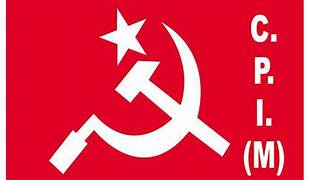The District and Session Court of South Tripura recently upheld the decision of a lower court, which had convicted and sentenced three CPM leaders for their involvement in creating a ruckus inside a courtroom and harassing a judge during a strike organized by Left parties on September 2, 2015.
The trial court had earlier found Tapas Datta, Trilokesh Sinha, and Babul Debnath, all belonging to the CPM, guilty of attacking the courtroom and harassing the presiding judge, Ruhi Das Paul, in Belonia, South Tripura. The court handed them a two-year rigorous imprisonment sentence.
The incident occurred when the CPM leaders, in the midst of a strike, caused disturbance and chaos inside the courtroom. Following a distress call from the court, the police arrived at the scene and subsequently registered a suo-moto case. After a thorough hearing, the trial court convicted the accused under various sections of the Indian Penal Code (IPC), including criminal trespass (Section 447), deterring public servants from discharging duty (Sections 353 and 332), and a criminal act in common intention (Section 34).
However, the convicted individuals appealed the judgment and approached the District and Sessions Court, challenging the decision of the lower court. They claimed their innocence in the case and requested the court to provide them with an opportunity to seek justice through the High Court.
The District and Sessions Court, after careful consideration of the arguments presented, upheld the decision of the lower court, thereby affirming the conviction and sentence imposed on the three CPM leaders.
The case highlights the importance of upholding the integrity and sanctity of courtrooms, where the rule of law must prevail. The act of creating chaos and harassing a judge not only disrupts the functioning of the judiciary but also undermines the principles of justice and respect for authority.
By upholding the conviction, the court sends a clear message that such disruptive behavior and contemptuous acts will not be tolerated, regardless of the political affiliations or positions of the individuals involved. It serves as a reminder that all individuals must adhere to the law and demonstrate respect for the judicial system.
The convicted CPM leaders now have the option to pursue their case further by approaching the High Court. The legal process will continue to unfold, providing them with the opportunity to present their arguments and seek a fair resolution.
It is crucial for the legal system to ensure a fair and impartial trial, wherein all parties have the chance to present their case and provide evidence in support of their claims. The appeals process allows for a thorough examination of the facts and circumstances surrounding the incident, ensuring that justice is served and the rights of the accused are upheld.
The outcome of this case will be closely watched, as it has implications not only for the individuals involved but also for the broader understanding of accountability and respect for the judiciary in the democratic fabric of Tripura.



